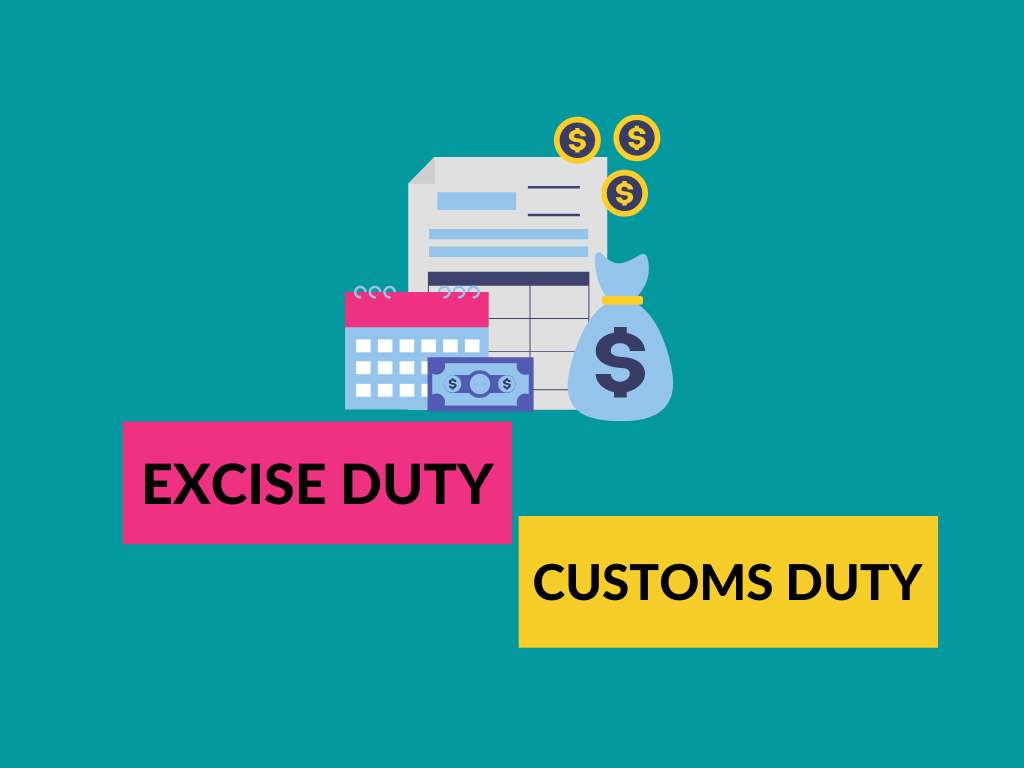The government imposes duties as a means of collecting revenue for various social development projects. The government is able to run the state thanks to taxes and duties.
Duty, an indirect tax, can be defined as a tax levy on goods imported from another country as well as goods manufactured in the country. It should also be noted that duty is only levied on goods, not on people. The two duties which are termed Excise duty and Customs duty are defined as Excise duty refers to the duty levied on goods manufactured within the state. The customs duty is the tax levied on goods imported from another country.
Taxes:
Taxes are the main source of revenue for the government. There are a variety of taxes collected by the government. You might have heard about some of these like VAT(Value added tax), service tax, excise duty, income tax, property tax, customs duty, etc; the taxes can broadly be classified into two categories: indirect taxes and direct taxes.
Excise duty:
Excise duty is charged on goods that are produced or made in factories. The owner or manager of the factory pays the money (tax) to the government according to the amount of production.
Example:
- Tax on iron
- Tax on alcohol
- Tax on cigarette
Customs duty:
Customs duty is charged on goods when they are transported across the international borders. Customs duty is to be paid by the importer of the goods.
Customs duty is of two types namely import duty and export duty
Import duty:
Import duty is a type of tax charged on the import of a nation’s customs authorities.
Export duty:
Export duty is imposed on exports of goods and services.
Difference Between Excise duty and Customs duty:
| Excise Duty | Customs Duty |
|---|---|
| Meaning | |
| Excise duty is charged on goods that are produced in factories. | Customs duty is charged on goods when they are transported across international borders. |
| Type of tax | |
| It is a kind of indirect tax | It is also a kind of indirect tax. |
| Paid by | |
| Excise duty is to be paid by the manufacturer of the goods. | Customs duty is to be paid by the importer of the goods. |
| Assessment | |
| Excise duty is calculated taking into account the number or volume of goods. | Custom duty of any goods is valued by its assessable value. |
Bottom line:
So, when we compare, Most administrative procedures, such as valuation, confiscation, refund, appeal, and settlement, are the same in both excise duty and customs duty.
Further related reading:





